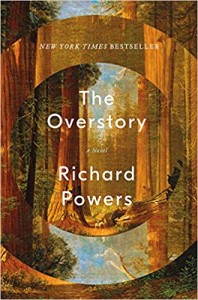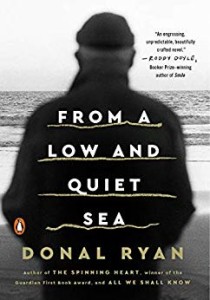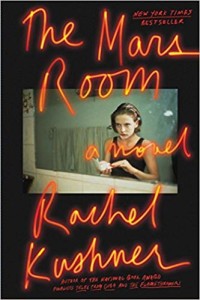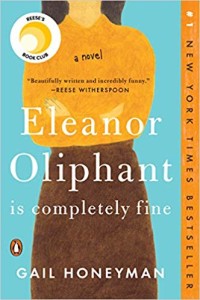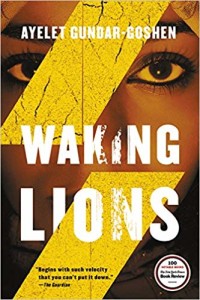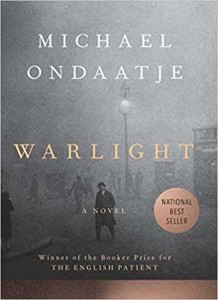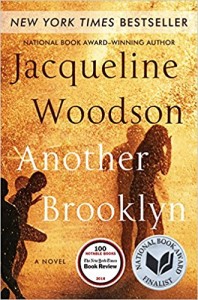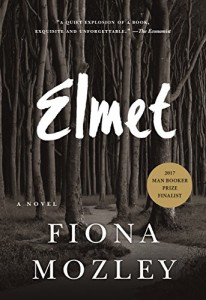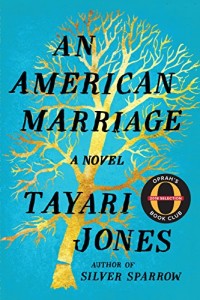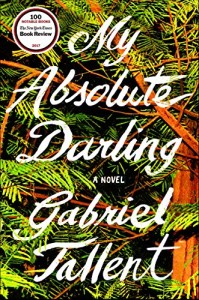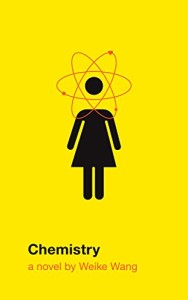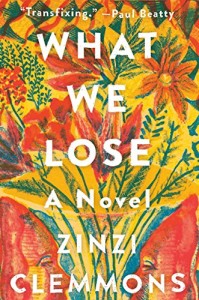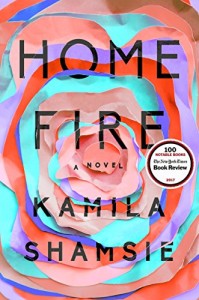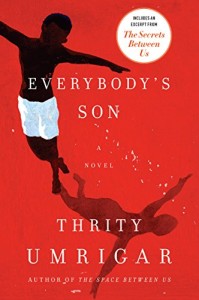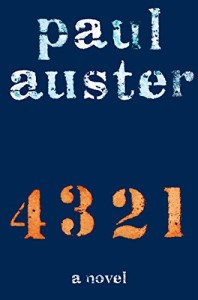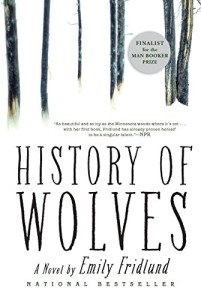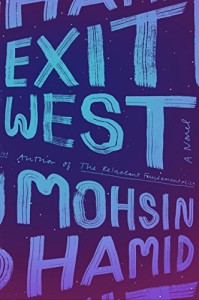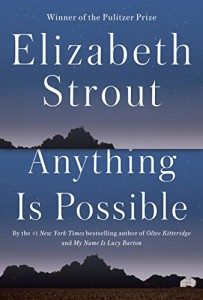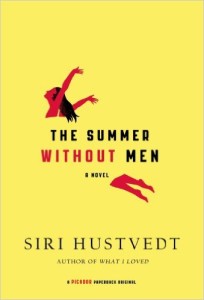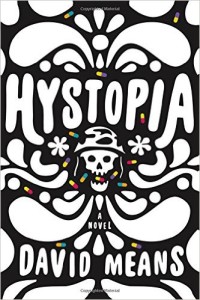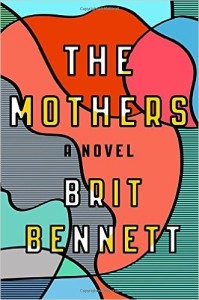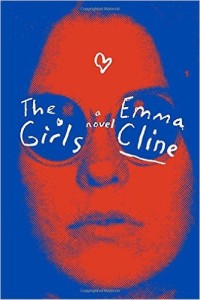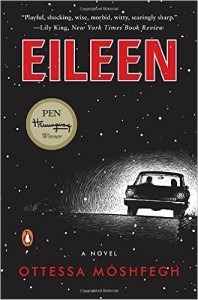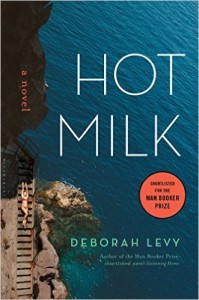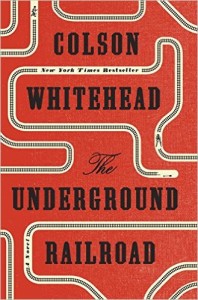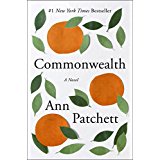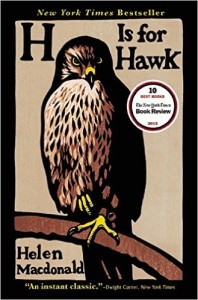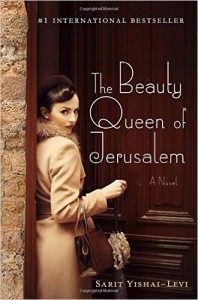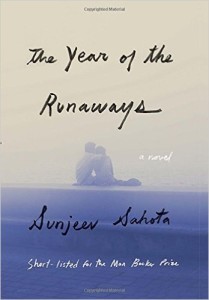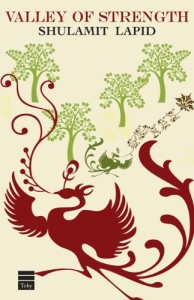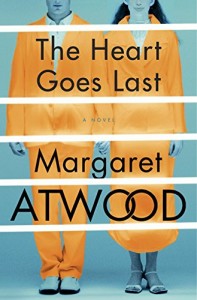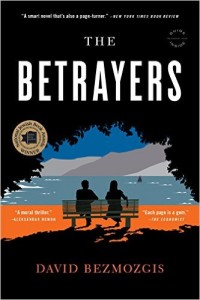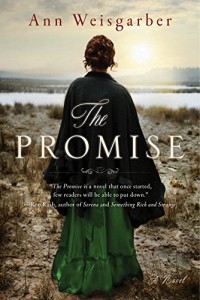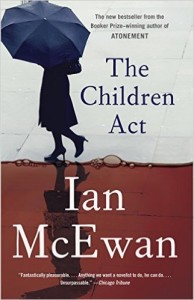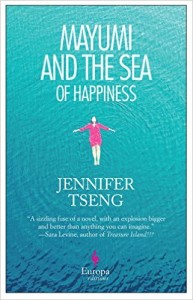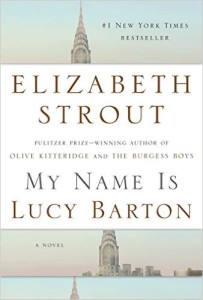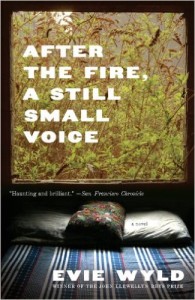Welcome to His Brother’s Keeper, a fictional mystery series set in 2000, in New York. I’ve decided to periodically lend my blog to a friend, Eva Hirschel. Eva doesn’t have a social media presence but she does have a mystery that she wanted to publish serially on-line, so I’m giving her a hand. (If you’re just tuning in now, use this Table of Contents to start at the beginning). Here is Part II, Chapter 6. Enjoy!
Chapter Six
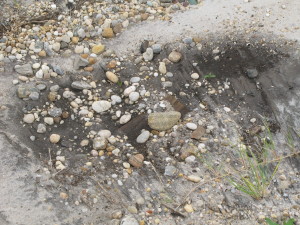 He talked and talked and talked. For a man who had been described as quiet and private, he had a lot to say. Outside, the rain continued to pour, unabated. Planes sat motionless on the runway. A peculiar silence, undisturbed by announcements and takeoffs. enveloped the terminal. My attention was so riveted by what I was hearing that I didn’t have time to worry about Hannah or feel guilty that I wasn’t home, and mercifully, Simon didn’t call. It was as if time was just stopped, like we were suspended in an infinite moment out of time. I was sure that if I looked at one of the large clocks over the bar, the hands wouldn’t be moving.
He talked and talked and talked. For a man who had been described as quiet and private, he had a lot to say. Outside, the rain continued to pour, unabated. Planes sat motionless on the runway. A peculiar silence, undisturbed by announcements and takeoffs. enveloped the terminal. My attention was so riveted by what I was hearing that I didn’t have time to worry about Hannah or feel guilty that I wasn’t home, and mercifully, Simon didn’t call. It was as if time was just stopped, like we were suspended in an infinite moment out of time. I was sure that if I looked at one of the large clocks over the bar, the hands wouldn’t be moving.
“Yankeleh is dead. If there is one thing I know for sure in this world, it is that Yankeleh is dead. I don’t know who this other man is, but Yankeleh is dead. You have to try to understand what it was like,” he began, still looking down at his hands. No longer weeping, a sense of calm had descended upon him, the kind of peace that comes with acceptance. “It was a time of total chaos, all normal rules of civilization were gone. You did what you had to do to survive. And try to understand my anger and confusion. I was about to be thirteen. It should have been my bar mitzvah, the biggest event in my life so far. Even though life for Jews had been getting worse and worse for some time, I had been sheltered from most of it. I was a little prince, the heir apparent, the future Halizcher rebbe. I was pampered, protected, praised for my scholarship. I was the rebbe’s brilliant grandson, the center of the universe, or so I thought.
“Somehow I was sure that God would save us, that the God who had saved Abraham and Isaac and Jacob would step in and make everything okay. How could it be otherwise? I was so selfish, so blind. It barely mattered to me that thousands, that millions of Jews had already died. They weren’t Halizchers—they didn’t have my grandfather’s special connection to God. I was sure we would be spared.
“You see, I was completely naive. Suddenly my world fell apart. We were rounded up and transported. Earlier, my grandfather had had a chance to save all of us, not just the family but the whole community, if only he had permitted himself to see what was going on. He had connections, he knew people, we could have all gotten out. But what did he do–he trusted his God! He condemned everyone I knew to death. He condemned me to death, me, his beloved! And my father, my father the weakling who could never stand up to my grandfather or my mother. And my mother, who thought her father actually was God. And my brother Yankeleh, and my grandmother, and my aunts Chayale and Sura. He could have saved me, he could have saved all of us, but he chose not to!
“And then they came to my grandfather, his Chasidim, with all the money and jewelry they could collect. Most of them weren’t rich people, but they gave him everything they had. Understand, not so they could save themselves, it was already too late for that because they had made the fatal mistake of listening to their rebbe. But so that they could save my grandfather, and so that they could save me. So they could buy our freedom, and have a future through me. And in the end, he could have saved me even without money. My uncle came to see him. I didn’t remember ever meeting my uncle before because they left for Palestine when I was young. But he got back into Poland and he came to save us. He had a plan. Would it have worked? Who knows? But attempting it would have been better than doing nothing. And in the end he did save many Jews, even some of the other rebbes. Turns out my uncle the Zionist, who did the unforgivable sin of taking my aunt away from my grandfather, turning her into a Zionist and taking her to the land of Israel, turns out he had a soft spot for Chasids after all. But my grandfather had no soft spot for him. No, he only had trust in his God, his God who allowed everyone I knew to die. Matters of life and death were not for us mere mortals to decide. It was all up to God. My grandfather used to tell a story about a rebbe passing through a town in a train. As he passed through, his Chasidim who lived in the town came to see him. One was clearly distraught, and so the rebbe asked him what was wrong. He told his rebbe that his factory had burned down and his home had been destroyed and he had nothing left. What did the rebbe do? He comforted the man and told him that at least he still had his faith, and that was more important than any material assets. The rebbe told this man not to worry, that as long as he had his faith all his material goods would soon be restored to him, and miraculously, it was just as the rebbe had predicted. This is how I grew up, believing that faith would solve everything, but by this time I had already learned that isn’t so, that the story in reality had a very different ending. In my version, not only did the poor man lose every possession he had in the world, but he and his family were taken away to Treblinka and died. All his faith meant nothing.
“I turned thirteen in Treblinka. I didn’t read Torah that day, and never have since. There were those inside who knew who I was, who tried to help me, some because they revered who I was, and some maybe because they thought I had the money hidden away. There were old men who tried to befriend me and give me the glory I once thought was my birthright. Old men my grandfather’s age came to me for blessings, for advice, for wisdom. But I was a child, for God’s sake, a child! I didn’t want to be their leader, I only wanted to be safe. I knew my father was dead—he didn’t survive the trip to Treblinka. My mother and grandmother died before we’d even arrived. I saw my grandfather die in front of me. I didn’t know what had happened to my aunts but I had no hope I would ever see them again. And I could see that my brother was dying. I was the younger brother, but he was always the smaller one, the weaker one. I did everything I could to help him. Any extra food or clothes that came my way from the Chasidim, I gave to Yankeleh. I slept with my arms around him for warmth. I did my best to make him not look so sick. At roll call I secretly pinched his cheeks to make them look pink. But I knew he wasn’t going to live. So I made a choice. It was simple, really. I decided to survive, just for spite. To see what the world was like after God. I wasn’t going to be the rebbe, I wasn’t going to be a Halizcher, I wasn’t even going to be a Chasid. But I would prove to my grandfather that life would go on despite God and despite the Halizchers. To prove that I could be anyone and anything I wanted to be. So when my brother collapsed one day, he was just a skeleton by then, and was beaten almost to death by a guard, I knew the end was near. There was nothing I could do to save him, and no miracle was going to happen.”
He paused in his telling, taking a deep breath, and then plunged ahead. “You see, I loved Yankeleh with all my soul. We were very different, yes, but we were like twins, two sides of the same person. He was brilliant, but it was a quiet brilliance. He wasn’t a showoff, a showman like I was. It wasn’t the kind of brilliance that drew people to him, but he was so good, so kind, so gentle. Ever since we were little I was the one protecting him, watching over him. He was otherworldly, naïve, acquiescent. When someone disagreed with a point he made in cheder, he would back down immediately, and agree that he had been wrong. His humility went unnoticed, and people simply thought he wasn’t a good student. But many of my “brilliant” insights came from him. That was my deep, dark secret as a child. Many of my Talmudic gems were Yankeleh’s. I was just a more convincing speaker. And he didn’t seem to mind. He was too busy studying the next page.
“But then during the time in the ghetto he began to change. He had become even more removed, distant, withdrawn. My parents and grandfather worried about him, worried that he was getting himself into trouble with people he shouldn’t be associating with, worried that he wasn’t studying enough. We were sure it was for a good reason, we never doubted his intentions, he must have felt some good would come out of it, but we were scared for him. He seemed so vulnerable. I worried that he wouldn’t know how to take care of himself if he got into trouble–he was always so pure in a way, so removed from the hard realities. My grandfather made me promise that no matter what happened, I would take care of him, that I would keep him safe and out of trouble. Yankeleh was my responsibility. Even though I was younger, he told me that I was smarter and stronger, and that Yankeleh needed my protection. So there, in the camp, my job was to save Yankeleh, and I couldn’t do it. Some of the Halizchers in the camp tried to help me. But some were just glad it wasn’t me dying. Can you imagine how I felt?
“So, finally, one day we are told we are going out of the camp. The guards joke that we are going on a vacation. Hah. They march us along a road, with ill-fitting wooden clogs on our decaying feet, miles, miles, in the cold, I cannot describe that march. And the whole time I am almost carrying Yankeleh. So many times he stumbles and falls. He is running a high fever. He tells me to let him go, that he is already dead. But I won’t. The person on his other side also takes an arm, and somehow, somehow, we get there, and he is still breathing. They give us shovels and tell us to dig. Anyone who can’t dig will be shot, and they provide examples. We dig and we dig, and of course, we know these are our graves. All around me I hear Jews praying under their breath, asking for help and salvation, reciting the shema and making their last confessions. Fools, I think to myself. But then I too am filled with thoughts of my parents, my grandfather, my aunts. I dig and I dig, for both of us, because Yankeleh is too weak. But I prop the shovel in his hand so that it looks like he is working and soon enough it doesn’t matter because we are in the hole and the guards can’t see. They’re busy joking and laughing and smoking. And Yankeleh’s breath is labored, slow, and I know he’s slipping away. I am getting not scared, not sad, there’s no room for that, but very very angry. How dare anyone do this to my brother. How dare my grandfather not have saved both of us? But I also know in my heart of hearts that he had never even considered saving Yankeleh. All the whispered conversations had only been about saving me. And I knew that I would not have left Poland without Yankeleh, not while he was still alive. And so as I know that Yankeleh is about to die, I also know that I am about to have a chance to take my fate into my own hands and change it.
“The guards come and decide that we have dug enough. Quite a few people have died during the digging, but what do they care? They line us up in front of the pits, and I know right away what is going to happen. Among the swaying and the praying, I hear shots, and quickly, quickly, right away, before the bullets come my way, I fall. I fall right onto Yankeleh. And I realize I have to do exactly as he is doing. He has stopped breathing, and so must I. And I do. Don’t ask me how. I don’t know. I don’t believe in miracles, but there it is. I stopped breathing, only I’m not dead. I can’t describe what it was like lying there, on top of Yankeleh, entangled in a multitude of other corpses. But mostly there was anger. They walked over us, making sure we were all dead. And I did just like Yankeleh, I didn’t breath or move or make a sound. They brought other prisoners afterwards to cover us with dirt, but it had started to snow and the guards were cold, so they called it off before we were covered with more than a thin layer of dirt. As the last lorry left, I took a deep breath. I closed Yankeleh’s eyes, and I kissed his face. And then I noticed he had something in his hand. My grandfather’s kiddush cup. I don’t know how he’s managed to conceal it all that time, and where. But he must have brought it with him, concealed in his clothes, because he knew he wouldn’t make it and he wanted me to have it. I know it sounds impossible but it’s true, somehow he managed. And it was like a message from him telling me to escape. So I took the cup, got up out of the pit, and ran into the forest.”
He paused to take a deep breath and wipe his forehead with a handkerchief. There were so many questions I wanted to ask, so many things I still didn’t understand, but I didn’t want to interrupt. I waited patiently, and after a few moments, he continued.
“Both of us died there in that pit. I couldn’t live as myself anymore, so I became Yankeleh. Leib was gone, that arrogant little boy who thought he was going to be the next king of the Jews, or at least the Halizchers, gone. But Yankeleh could live on in me, his humility, his goodness, his gentleness. I became Yankeleh. If I’d really been smart, I would have changed my name entirely, I would have thrown away Gelberman and become, I don’t know, Smith. But I couldn’t think that far ahead. So I became Yankeleh, and I survived. I lived alone in the forest, foraging for roots and berries. I was starving, and cold, but it was no worse than in the camp, and I was free. I was found by a farmer’s widow, who for some reason didn’t turn me in, with my fair hair and blue eyes maybe she could pretend to herself that I wasn’t a Jew, and she hid me for some time. During the day I hid curled up in a hollowed out space under the hay. I stunk but who cared? And at night I would help her with repairs, things she couldn’t do herself. I think she liked having a “man” around. She didn’t seem to notice that I was so young, and whatever she wanted me to do, I learned quickly. She fed me fairly well, so all in all I was lucky. But then she got scared and I had to leave. Eventually I came across a group of young Jewish partisans and they took me in. They had all grown up in secular homes, so my name meant nothing to them. By then the allied troops were already on their way. I went from there to a D.P. camp in Italy.
“In the D.P. camp I came across some of the surviving Halizchers. But no one recognized me. I had grown, my body acting in defiance of the reality of those years, just as my soul had done. And through my contact with the Americans and the Red Cross volunteers, I met a soldier named Jack. He had the healthy, bright red cheeks of someone who had grown up well-fed, and this cheery optimism despite what he’d seen. To me he embodied America. The name Jack sounded strong, solid, new world, brash. And of course it was short for Jacob, or Yaakov, Yankeleh’s real name. So Yankeleh quickly became Jack. It was easy. And none of the Halizchers realized who I was. It was terrible for me to see them. Most had died, and those who hadn’t were broken. Everyone had lost so much. Yet they still believed in miracles, in their God. They still had faith, and they still wanted a rebbe. I made sure to stay far away from them, but I heard from others that both the Gelberman brothers had died in a pit outside Treblinka. Good, I thought. Good. That world is dead, and Yankeleh is dead, and Leib is dead. I am Jack, and Jack is going to America.
“I learned English there in the camp, while I waited for papers to go to America. I volunteered with the various agencies there, translating and trying to be of help. One day, I heard two Americans talking about a woman in the infirmary section of the camp, how no one knew what to do with her or how to help her, and that they didn’t know where to send her. She had no home to go back to, no relatives they could find, and that since she was clearly mentally ill, America wouldn’t take her. Israel, of course, wasn’t yet taking in refugees legally, because this was before 1948. They spoke about how this woman, who they could tell had been young and beautiful but was now an empty shell, had been kept as a mistress by a prominent Nazi, and had undergone unspeakable horrors. Apparently one of the Jewish doctors had surmised that she might have come from a Chasidic family, because while she wouldn’t speak, she sang Chasidic niggunim. At that point I interrupted their conversation, and volunteered to go speak to the woman. I knew that I was risking something by associating myself with Chasidut, since I had worked so hard to keep away from any connection, but her story sounded so utterly sad, and I felt compelled to help, if I could. So one of the American nurses took me to see this woman.
“I walked into the makeshift infirmary, and they brought me over to her. I realized right away it—it was Chayale. You can’t know, you can’t imagine. My joy at finding a family member alive, my horror at what had happened to her. She had been like Yankeleh in so many ways, so delicate, unprepared for hardship and suffering. I wanted to grab her and take her away, but I couldn’t. I had no way to help her, other than to be with her, to spend time with her. She recognized me, and we embraced, but she never spoke. She only sang, over and over, the songs from her childhood. She was my aunt, but she was only four years older than I was. Now, after the war, she was much older than I would ever be, and much younger than I can ever remember being. She was a child in an old woman’s shattered body. But I couldn’t leave her. Every day I went, I talked to her, I sang with her. Every day I cried. I hadn’t cried over all the deaths, but over Chayale I cried every day. Then one day I got word that I could be sponsored to go the United States. I didn’t want to go to New York, or to some big city where I might encounter Chasidim and be recognized. But this was perfect. They wanted to send me to some godforsaken part of the country, to western Pennsylvania. I didn’t know where it was, but it didn’t matter, it wasn’t New York or LA or Chicago. But I couldn’t take Chayale. I didn’t have the resources, and they wouldn’t let her in as a refugee. So again, I chose myself over someone I loved, and I went, promising to find a way to bring her.
“After 1948, she was sent to Israel. They tried to rehabilitate her there, but nothing worked. She was institutionalized. Finally I had enough money, and I brought her here. At first my wife and I tried to keep her in our house, but that didn’t work. She needed too much care. We tried a facility in Pittsburgh, but that didn’t work either. She needed round the clock care in a facility where she could hear Yiddish and eat kosher food. We sent her to Jewish Memorial Home in the Bronx. We were able to convince them to take her even though she was really too young at the time. She’s been there so long that now she is at last an old woman. It’s hard because I can’t go often, especially now that I’m here. But she is happy there. Or she was, until recently. And I’m afraid that this is where you come in.”
I was beginning to feel exhausted from his story, emotionally and physically. But there were clearly many more pieces. How did the kiddush cup figure in? Jack Gelberman sat still for a few moments, gazing over my head at the storm outside. He closed his eyes, took a deep breath, exhaled, and continued his story.
[To be continued…]
His Brother’s Keeper is entirely fictional. None of the characters or situations described in this series are based on real people or events. Copyright (c) 2015 by Eva Hirschel.
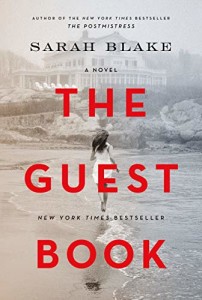 This is a story about a family, but also about a country, told over several generations. The Miltons are blueboods, the bedrock of America. They are the definition of privilege and noblesse oblige. Civility and honor are prized, along with knowing one’s place – the assumption being that a everyone should know their place and act accordingly. The family patriarch buys an island in Maine in the years preceding World War II, which is the backdrop to much drama and a deeply buried mystery which later gets unearthed by a granddaughter trying to make sense of the past. Blake does a magnificent job depicting the different generations, their relationships to each other, and their experiences of both the island and the family legacy. The island itself comes beautifully to life through the seasons and over the years, with incredibly gorgeous detail of the sea and local plant life and the items in the kitchen and in the bedrooms, the clothes that the characters wear and what each generation is drinking, so that the place itself a main character in this compelling tale. She expertly weaves together the threads of this story that are both highly personal to the Milton family, and also contain reverberations of American history and changing national mores. The personal is truly political here, even as individual family members try over the generations to cover up their complicity. But truth seeps out of the cracks of even carefully constructed lies and omissions, and is eventually uncovered.
This is a story about a family, but also about a country, told over several generations. The Miltons are blueboods, the bedrock of America. They are the definition of privilege and noblesse oblige. Civility and honor are prized, along with knowing one’s place – the assumption being that a everyone should know their place and act accordingly. The family patriarch buys an island in Maine in the years preceding World War II, which is the backdrop to much drama and a deeply buried mystery which later gets unearthed by a granddaughter trying to make sense of the past. Blake does a magnificent job depicting the different generations, their relationships to each other, and their experiences of both the island and the family legacy. The island itself comes beautifully to life through the seasons and over the years, with incredibly gorgeous detail of the sea and local plant life and the items in the kitchen and in the bedrooms, the clothes that the characters wear and what each generation is drinking, so that the place itself a main character in this compelling tale. She expertly weaves together the threads of this story that are both highly personal to the Milton family, and also contain reverberations of American history and changing national mores. The personal is truly political here, even as individual family members try over the generations to cover up their complicity. But truth seeps out of the cracks of even carefully constructed lies and omissions, and is eventually uncovered.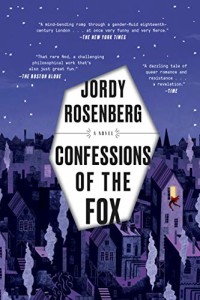 A conceptual novel if ever there was one, for most of the time I was reading this I couldn’t decide if it was brilliant or insane, or both. Based on the life of historical characters from 18th century London, Jack Sheppard, a reknown thief and jailbreak, and Edgeworth Bess, a famous prostitute, this novel is a combination of different styles, narratives, and narrators. It is about as queer a novel as is possible, dealing with queer identity and also breaking down boundaries about writing and novels and fiction, and so much more. Ostensibly, this volume is a research project being undertaken by a professor, Dr. Voth, whose career is shaky at best and whose heart has recently been broken. The reader comes to understand that the professor is trans, and that there is much going on in the Dr. Voth’s life beyond this project. The book is divided into two parts. One is a longlost autobiographical manuscript containing the story of Jack Sheppaard and Edgeworth Bess. The manuscript, which may or not be a hoax, reveals heretofore unknown information including that Sheppard had been born a girl, and other ways in which both were masters of gender-transformation and barrier-breakers. The other part of the book are Dr. Voth’s footnotes on the manuscript, which both comment on the manuscript, and within those margins also begin to shape a narrative about the professor’s own life and reality. If this sounds like a dizzying journey, it is. But it is well worth it. This boundary-pushing book is a delicious delight, at times quite funny and at other times heartbreaking. And, yes, it is absolutely brilliant.
A conceptual novel if ever there was one, for most of the time I was reading this I couldn’t decide if it was brilliant or insane, or both. Based on the life of historical characters from 18th century London, Jack Sheppard, a reknown thief and jailbreak, and Edgeworth Bess, a famous prostitute, this novel is a combination of different styles, narratives, and narrators. It is about as queer a novel as is possible, dealing with queer identity and also breaking down boundaries about writing and novels and fiction, and so much more. Ostensibly, this volume is a research project being undertaken by a professor, Dr. Voth, whose career is shaky at best and whose heart has recently been broken. The reader comes to understand that the professor is trans, and that there is much going on in the Dr. Voth’s life beyond this project. The book is divided into two parts. One is a longlost autobiographical manuscript containing the story of Jack Sheppaard and Edgeworth Bess. The manuscript, which may or not be a hoax, reveals heretofore unknown information including that Sheppard had been born a girl, and other ways in which both were masters of gender-transformation and barrier-breakers. The other part of the book are Dr. Voth’s footnotes on the manuscript, which both comment on the manuscript, and within those margins also begin to shape a narrative about the professor’s own life and reality. If this sounds like a dizzying journey, it is. But it is well worth it. This boundary-pushing book is a delicious delight, at times quite funny and at other times heartbreaking. And, yes, it is absolutely brilliant.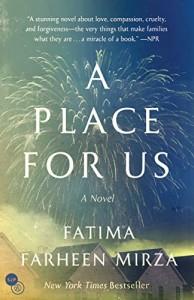 My first thought upon recalling the experience of reading this book is simply to take a deep breath. There is a reverence to this book, a deep respect for the tradition out of which this story comes. In many ways, this book belongs to a genre of stories of immigrants to the United States, with generational differences causing friction between parents and children and struggles over identity and belonging. Within that genre there is a sub-genre to which it belongs as well, the stories of immigrant families from India, with all the particulars of those stories. And while this particular book does belong to that genre and sub-genre, it is so much more. As the family gathers for a wedding, their love for each other comes to the surface along with secrets, anger, and hurts. As the narrative moves from the present to the past, and then into the future, betrayal after betrayal is revealed, and the scars become visible. Yet with all the drama, there is an understated stillness and quietude that threads through the complexity of this family story. Their Muslim faith is in the forefront of their behavior; their beliefs and theology is described in loving ways that allow for struggle and engagement rather than serving as a mere descriptive element. They want to be people of faith, and they are sustained by their faith, even as they worry about not living up to its highest aspirations. I found their struggle to be deeply moving, and the level of complexity with which they struggled to be quite compelling.
My first thought upon recalling the experience of reading this book is simply to take a deep breath. There is a reverence to this book, a deep respect for the tradition out of which this story comes. In many ways, this book belongs to a genre of stories of immigrants to the United States, with generational differences causing friction between parents and children and struggles over identity and belonging. Within that genre there is a sub-genre to which it belongs as well, the stories of immigrant families from India, with all the particulars of those stories. And while this particular book does belong to that genre and sub-genre, it is so much more. As the family gathers for a wedding, their love for each other comes to the surface along with secrets, anger, and hurts. As the narrative moves from the present to the past, and then into the future, betrayal after betrayal is revealed, and the scars become visible. Yet with all the drama, there is an understated stillness and quietude that threads through the complexity of this family story. Their Muslim faith is in the forefront of their behavior; their beliefs and theology is described in loving ways that allow for struggle and engagement rather than serving as a mere descriptive element. They want to be people of faith, and they are sustained by their faith, even as they worry about not living up to its highest aspirations. I found their struggle to be deeply moving, and the level of complexity with which they struggled to be quite compelling.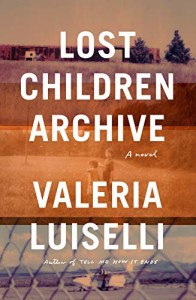 Read this book. Now. Run, don’t walk. This Man Booker Longlisted novel is both urgently of the moment, and achingly timeless. A patched together family of unnamed members, a mother, a father, a daughter and a son, get in a car to drive across America. It is in some ways an epic American road novel of discovery, myth-making, and in this case also myth-breaking. The parents are both involved professionally in recording sounds for the purposes of creating stories and documentaries, though their particular interests are in different areas. The mother, spurred by her distress about lost children in the midst of the current refugee and immigration crisis, is determined to tell a story about what is happening with children currently trying to enter this country. The father wants to tell the story of the Apache, to examine the reality versus the myth of what happened to the people who were the original inhabitants of this land and for whom we are the ones who came, uninvited and unwelcome. This is a story about the history and future of a particular family, and it is a story about a the history and future of this country. It is heartbreaking, and gorgeously written, with a kind of poetic repetitive beat that drives the narrative even at its most quotidian. But wait – there’s more. The story is told from several points of view, and includes lists, and so many names of books and writers, and a story within the story, and descriptions of photographs, and sounds, so many sounds and echoes of sounds that it feels like a multi-sensory experience as well as one of those never-to-be-forgotten interdisciplinary college classes that dizzyingly ties everything together in ways formerly unimaginable. A wise friend recommended that I listen to the book rather than read it, something I almost never do with fiction, but I listened to her advice and now I understand why. So that’s my recommendation as well – this is a book to listen to. Try it and you’ll see why.
Read this book. Now. Run, don’t walk. This Man Booker Longlisted novel is both urgently of the moment, and achingly timeless. A patched together family of unnamed members, a mother, a father, a daughter and a son, get in a car to drive across America. It is in some ways an epic American road novel of discovery, myth-making, and in this case also myth-breaking. The parents are both involved professionally in recording sounds for the purposes of creating stories and documentaries, though their particular interests are in different areas. The mother, spurred by her distress about lost children in the midst of the current refugee and immigration crisis, is determined to tell a story about what is happening with children currently trying to enter this country. The father wants to tell the story of the Apache, to examine the reality versus the myth of what happened to the people who were the original inhabitants of this land and for whom we are the ones who came, uninvited and unwelcome. This is a story about the history and future of a particular family, and it is a story about a the history and future of this country. It is heartbreaking, and gorgeously written, with a kind of poetic repetitive beat that drives the narrative even at its most quotidian. But wait – there’s more. The story is told from several points of view, and includes lists, and so many names of books and writers, and a story within the story, and descriptions of photographs, and sounds, so many sounds and echoes of sounds that it feels like a multi-sensory experience as well as one of those never-to-be-forgotten interdisciplinary college classes that dizzyingly ties everything together in ways formerly unimaginable. A wise friend recommended that I listen to the book rather than read it, something I almost never do with fiction, but I listened to her advice and now I understand why. So that’s my recommendation as well – this is a book to listen to. Try it and you’ll see why.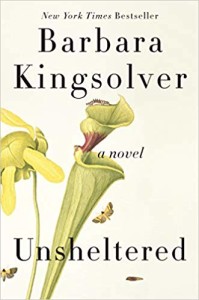 I love Barbara Kingsolver’s writing but this should have been a better book. I don’t regret reading it. But it seemed as if, because Kingsolver is such a successful author, that it didn’t get the editing it should have gotten. The concept is great. There are two parallel stories occurring in the same place, a century apart, in Vineland, New Jersey. Kingsolver has great material to work with here – Vineland has an interesting history. But the story felt too forced and too much in service about making a point about the state of the world in which we’ve found ourselves today, and the dire consequences that we will facing shortly if we don’t change our ways. In both stories. a literal house and a way of life are falling apart. Can either be saved is the question asked in both stories, and the answer is not a good one in either. But the stories are filled with interesting characters and possibilities for transformation, moments of aching tenderness and beautiful descriptions of nature. All of that made it possible to get through a book that desperately needed to be shorter and sharper.
I love Barbara Kingsolver’s writing but this should have been a better book. I don’t regret reading it. But it seemed as if, because Kingsolver is such a successful author, that it didn’t get the editing it should have gotten. The concept is great. There are two parallel stories occurring in the same place, a century apart, in Vineland, New Jersey. Kingsolver has great material to work with here – Vineland has an interesting history. But the story felt too forced and too much in service about making a point about the state of the world in which we’ve found ourselves today, and the dire consequences that we will facing shortly if we don’t change our ways. In both stories. a literal house and a way of life are falling apart. Can either be saved is the question asked in both stories, and the answer is not a good one in either. But the stories are filled with interesting characters and possibilities for transformation, moments of aching tenderness and beautiful descriptions of nature. All of that made it possible to get through a book that desperately needed to be shorter and sharper.
